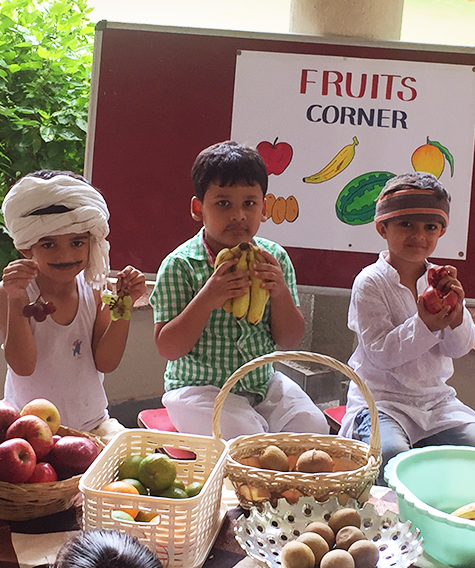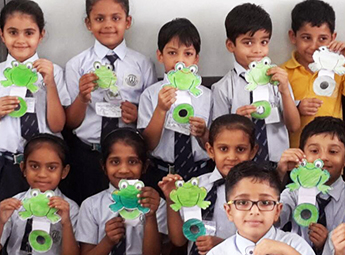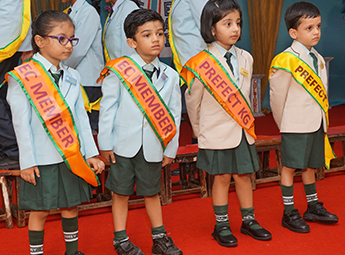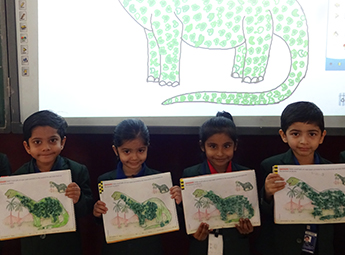Pre-Primary School Programme (LKG - UKG)
The Pre-Primary programme engages children in an interactive and fun classroom experience, coaxing their curiosity and urging them to stretch their imagination. The teachers ensure a personalised approach towards all students, helping to nurture a keen interest in them towards learning, enhancing social skills, and instilling moral values. The primary focus of the programme is on building the students’ self-confidence and enhancing their ability to communicate effectively in English as well as in their mother tongues. Teachers maintain this approach by the effective use of language and by encouraging children to express themselves freely.
The curriculum incorporates several indoor and outdoor activities that teach children to work independently as well as in a team. These activities guarantee a lively and positive environment for children to participate in games, songs, craft projects, story-telling, role-playing, recitation, drawing painting etc. that develop children's fundamental skills in literacy, numeracy, arts and phonetics. They are encouraged to innovate, explore and discover through dance, music, art and craft. The use of pictures, models and symbols help them identify relationships between sets and arrangements that are to be sorted, counted, shared or represented.

Sports and games help in strengthening coordination and motor skills, and instill a spirit of team-work and sportsmanship in the young learners. Picnics and field trips nurture students' understanding of the environment and instil a versatility in their Schooling experience. Celebration of festivals sensitises them to the diverse range of cultures and traditions in the country.
Programme Highlights:
- Students are provided a conducive environment so that they can learn, grow and play.
- Books, toys, stories,rhymes, songs, alphabets and numbers, experiments and field trips are an integral part of the teaching plan.
- Play materials are given to young learners to touch, feel and explore.
- Activity and library periods are conducted to provide opportunities to students to develop their gross and fine motor skills and nurture their curiosity.
- Learning by means of activities like art, craft, music, dance, stories and experiments help learners to acquire integrated knowledge.
- Colourful and spacious classrooms and opportunities to explore the environment make the students perceptive and inquisitive.
- Activities like role-play, puppetry, circle time, interest corners and several innovative teaching practices help students to identify and enhance their innate talents and skills.
- Festivals and special celebrations make children develop their life skills, understand and appreciate the cultural heritage and diversity.
- The curriculum prepares children for a smooth transition to a more formal and advanced primary curriculum, making it easier for them to adapt to the new environment.


